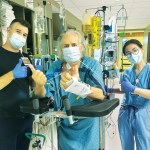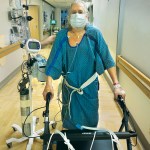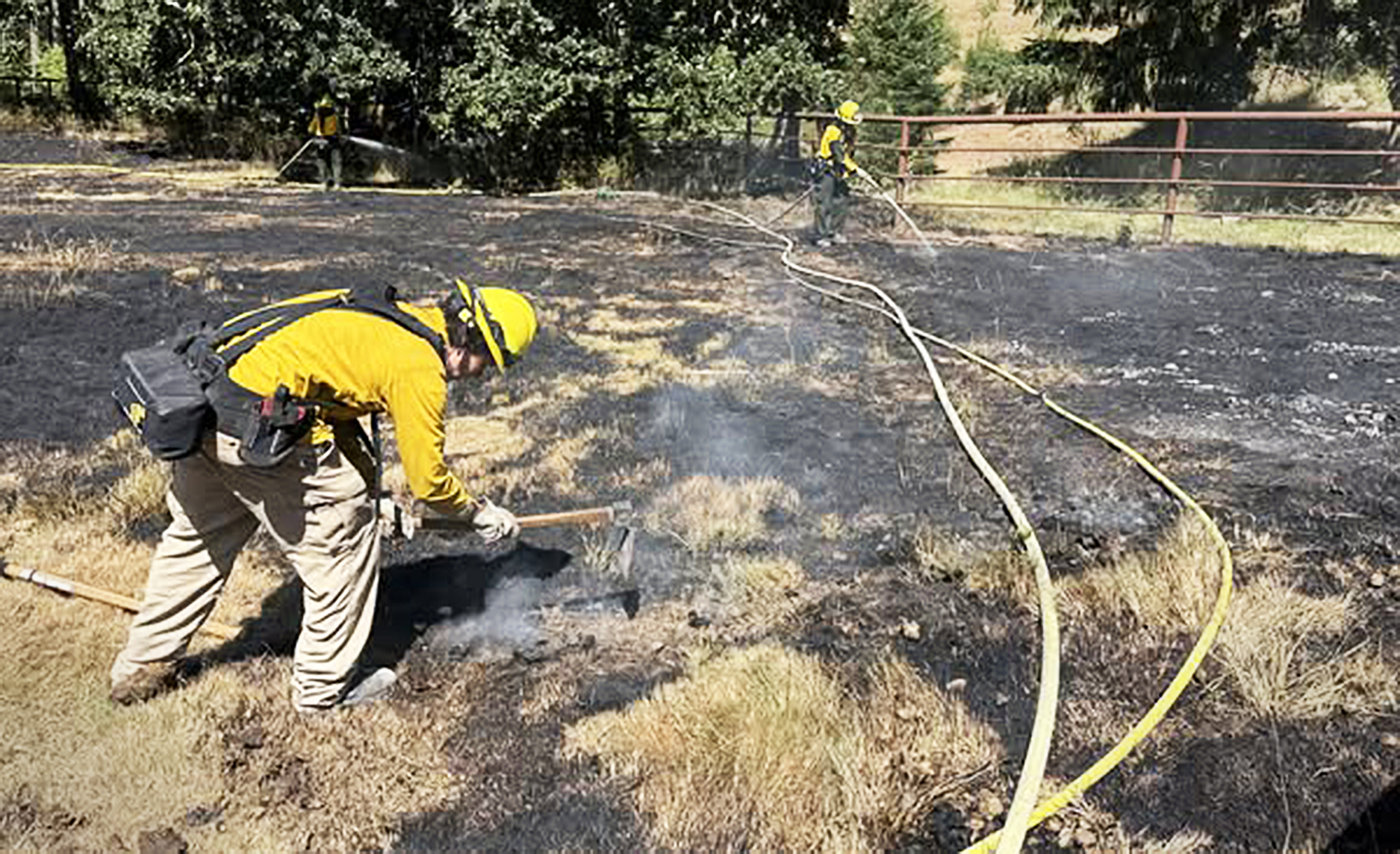Newberg man receives life saving double-lung transplant
Published 5:00 am Tuesday, July 29, 2025


Bart Rierson sees immediate improvement in his health after undergoing surgery in early July
Bart Rierson can now breathe easier.
The Newberg man, told by his doctors that they had exhausted all possible remedies for the crippling lung disease he had contracted in 2023, is recuperating from the one thing that could save his life: a transplant.
Trending
In fact, Rierson was twice as fortunate: in early July he underwent a bilateral double lung transplant in a six-hour procedure at the University of Washington Medical Center in Seattle.
Rierson and his wife, Michelle, got the call on the afternoon of July 2 telling them to report to the medical center by 10 p.m. He was wheeled into the operating room at 7:30 a.m. the next morning for the procedure.
“He had a clamshell incision (armpit to armpit) across his chest,” Michelle Rierson said, explaining that her husband was then placed on a heart/lung machine. “One lung at a time is removed and replaced with the donor lung.”
Following the surgery, Bart Rierson had three tubes placed in his chest to drain fluids and was placed on a ventilator for several days to help him breathe. He will continue to take anti-rejection medication for the rest of his life.
The avid outdoorsman’s recovery has been nothing short of miraculous since the surgery.
“Bart’s courage in facing the physical challenges has been inspiring. He is now breathing without needing any oxygen,” Michelle Rierson reported in mid-July. “Today he walked the hospital halls for two miles without oxygen. We could not remember the last time he was able to walk even a few blocks on his own.”
Trending
Rierson’s doctors report that his lung capacity will continue to improve over the next six months, the pain from the invasive procedure will subside and the balancing act of receiving the anti-rejection medication and keeping him healthy will be a “long road,” she added.
Following the procedure, Rierson spent five days in the medical center’s intensive care unit, then was transferred to the thoracic unit before being discharged July 18 after only about two weeks in the hospital.
“His recovery is happening so quickly that we are still not sure about the outpatient appointments — (probably) a couple times a week for the first few weeks,” Michelle Rierson said. “We do know that he will have monthly appointments for a year, then every three months for several years.”
Rierson will continue to undergo occupational therapy while safeguarding the large incision in his chest for the next three months until it heals completely. He will also undergo physical and respiratory therapy for a time.
Donor’s identity unknown
It is the policy of the United Network for Organ Sharing, the agency responsible for finding a lung donor for Bart Rierson and others, to not disclose the identity of the deceased individual who donated the lungs that now reside in Rierson.
“Some donor families will write a letter, but some do not,” Michelle Rierson said. “We have not received anything yet from the donor’s family.”
She added that she suspects her and her husband will write a letter that will be forwarded by UNOS to the donor family.
“This is truly emotional for us,” she said. “We know while this is a miracle for our family, another family is facing the loss of a loved one. We are incredibly grateful for this second chance and this amazing gift. We want to honor the donor by doing everything to take care of these lungs and live every moment.”
GoFundMe account continues to climb
Although the Rierson’s have health insurance, it doesn’t pay all the bills that they have and will incur since Bart Rierson received a new lease on life in early July.
Recognizing that, family and friends started the GoFundMe account to try to mitigate some of what Michelle Rierson termed the “overwhelming” expenses not covered by insurance: pre-transplant evaluations, recovery, travel to the transplant center, temporary relocation and lifelong anti-rejection medications.
“There are deductibles, copays, medications, travel expenses and temporary relocation living expenses that are not covered by insurance,” she said. “These expenses can easily exceed $100,000, and insurance only covers part of it.”
The GoFundMe account (gofundme.com/f/help-bart-rierson-breathe-again) has raised $16,508 as of July 28 via 95 donations, most in the $50 to $100 range. The goal was to raise at least $15,000.
A diagnosis akin to a death sentence
In late 2023, Rierson was diagnosed with a rare lung malady called pulmonary fibrosis, described in medical journals as a progressive disease characterized by scarring and thickening of lung tissue that makes it difficult to breathe.
He sought medical aid after struggling with a chronic cough for months. Doctors prescribed pulmonary therapy and medication, but to no avail.
“It is hard to tell if this was helpful or not,” Michelle Rierson said, adding that doctors told the couple there was only one cure for pulmonary fibrosis — a lung transplant, as life expectancy without one is three to five years after the diagnosis. “In November (2024), Bart’s pulmonologist sent a message stating that his condition had progressed and we should start preparing for end-of-life.”
The pulmonologist informed the couple that Rierson would not qualify for a lung transplant because he was more than 65 years old, but added that the family might seek a second opinion.
“We contacted the Mayo Clinic in Phoenix and the University of Washington Medical Center in Seattle,” Michelle Rierson said. “After months of testing, both places said Bart did qualify and was a good candidate for a lung transplant.”
In February, Bart Rierson joined the thousands of individuals hoping for a donor organ listed on UNOS.









